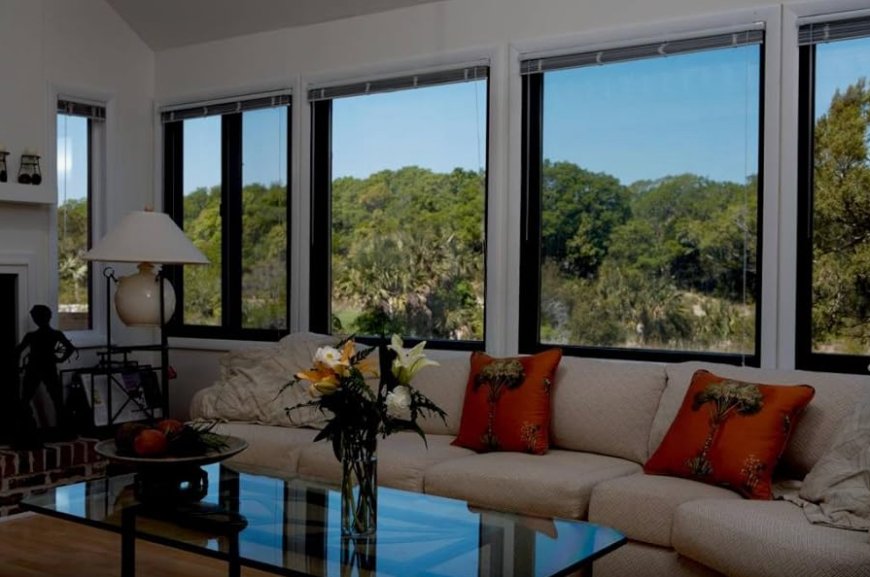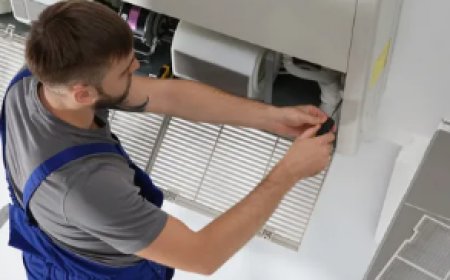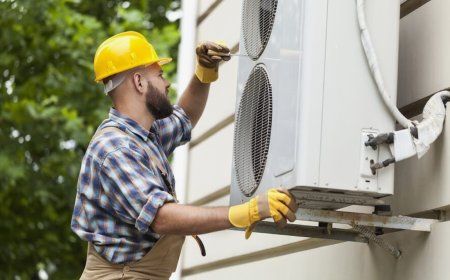Window Tinting Benefits: From UV Protection to Energy Savings
Discover how window tinting helps reduce energy bills, protects against sun damage, and improves your comfort indoors and in vehicles.

Sunlight can be both a friend and a foe. While it brings light and warmth, too much exposure can lead to glare, fading furniture, overheated interiors, and even health concerns. Whether you're driving your car or relaxing at home, managing sunlight effectively is key. One smart solution is window tinting. This thin film added to glass windows does more than make them look sleekit protects, insulates, and enhances privacy. In this guide, well explore everything you need to know about window tinting, from how it works to how it can benefit your lifestyle.
What Is Window Tinting and How Does It Help?
Window tinting is the process of applying a transparent or shaded film to the surface of glass. This film is specially designed to block ultraviolet (UV) rays, reduce glare, and lower the amount of heat that enters through windows.
Many people choose window tinting for aesthetic reasons, but the real value lies in its functionality. It can:
-
Reduce indoor temperatures
-
Protect furniture, car interiors, and skin from sun damage
-
Add a layer of privacy
-
Enhance energy efficiency in homes and vehicles
Whether youre a homeowner or a driver, tinting offers both comfort and protection year-round.
Different Types of Window Tints and Their Uses
Theres no one-size-fits-all when it comes to tint films. Here are some popular options:
-
Dyed Film: A budget-friendly option that blocks sunlight and adds privacy, but may fade over time.
-
Metalized Film: Contains small metallic particles that reflect heat and add strength to windows.
-
Ceramic Film: Offers top-tier heat and UV rejection without compromising visibility or interfering with signals.
-
Carbon Film: Durable and fade-resistant, it provides good heat control with a stylish matte finish.
Your choice should depend on your specific needswhether its for energy savings, privacy, or UV protection. Always consult a professional installer to select the right film.
Top Reasons to Consider Window Tinting
Still unsure if tinting is worth it? Here are some compelling reasons why homeowners and drivers alike choose it:
-
Energy Savings: Tinted windows help reduce the need for air conditioning, especially in summer, leading to lower electricity bills.
-
UV Protection: Blocks up to 99% of harmful UV rays that damage skin and fade interiors.
-
Increased Privacy: Prevents outsiders from easily seeing inside your home, office, or car.
-
Glare Reduction: Cuts down harsh sunlight that makes it hard to see screens or drive safely.
-
Safety: In case of accidents or impact, some films help hold broken glass together, reducing injury risk.
With so many benefits, its easy to see why window tinting is growing in popularity across different spaces.
Is DIY Window Tinting a Good Idea?
Many people wonder whether they should try installing tint film on their own. While DIY kits are available, there are a few things to consider:
-
Precision Matters: Poor application can result in bubbles, creases, or uneven finishes.
-
Tools and Skills: Youll need proper tools and experience to ensure a smooth, professional look.
-
Legal Limits: Professionals understand local regulations on how dark your window tint can be.
-
Warranty: Professional services often come with warranties, offering long-term peace of mind.
While DIY may be cheaper upfront, professional window tinting typically provides better results and long-lasting performance.
Laws and Regulations: Know Before You Tint
Before getting your car or home windows tinted, check local laws and building codes. Tinting laws vary by state or country and often define:
-
The maximum allowable tint darkness (Visible Light Transmission or VLT)
-
Which windows (front, side, rear) can be tinted and how dark
-
Whether reflective or mirrored tints are allowed
-
Required certifications or stickers showing compliance
Not following these rules can lead to fines or the need to remove non-compliant tint, so always stay informed.
How to Maintain Tinted Windows for Long-Lasting Results
Proper care will extend the life of your tinted windows and keep them looking great:
-
Wait Before Cleaning: Dont clean tinted windows for at least 3 to 5 days after installation.
-
Use Safe Cleaners: Avoid harsh or ammonia-based cleaners that can damage the film.
-
Soft Cleaning Tools Only: Use microfiber cloths or soft paper towels to avoid scratching.
-
Gentle Pressure: Dont use razors or scrape the filmthis can peel or tear it.
-
Regular Inspections: Check edges and corners for any peeling, especially in older films.
With the right maintenance, your window tinting can last many years without fading, bubbling, or discoloration.
FAQs
Q1: How long does window tinting last?
High-quality films installed by professionals can last between 10 to 15 years, depending on the brand and exposure to sunlight.
Q2: Is window tinting only for cars?
No! Tinting is also great for residential and commercial buildings. It helps regulate indoor temperatures and protects against UV rays.
Q3: Will tinting make my room or car too dark?
Not necessarily. There are various shades available. You can choose a light tint that still blocks UV and heat without reducing visibility.
Q4: Can I remove window tint myself?
Yes, but it can be tricky. If not done properly, you may damage the glass or leave sticky residue. Its best to have it removed professionally.
Q5: How much does window tinting cost?
Prices vary depending on film type, number of windows, and installation. Car tinting usually costs $150$400, while home window tinting is priced per square foot.
Conclusion: Is Window Tinting Worth the Investment?
In shortyes. Whether you want to cool down your living room, drive without sun glare, or protect your valuables from fading, window tinting delivers real, lasting value. With a wide range of films to choose from, expert installation options, and long-term benefits, its a practical upgrade for comfort, efficiency, and safety. Just be sure to follow the law, maintain the film, and choose a trusted installer for the best results.






































